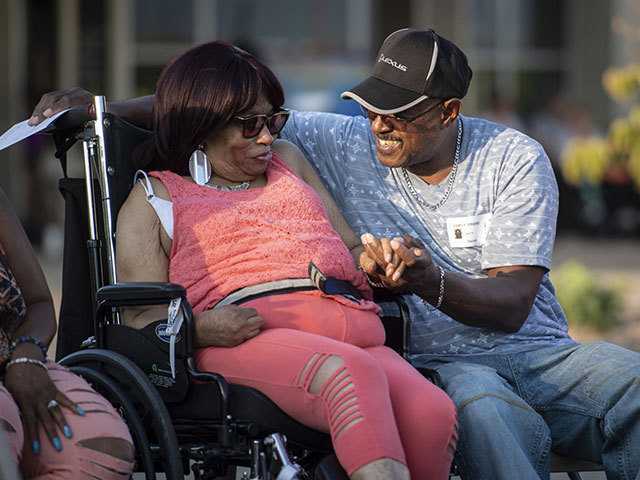Rehabilitation vs. Recovery - Club Atletico Tucuman - For The Students of Knowledge (original) (raw)
When it comes to overcoming challenges and setbacks, two terms that often surface in discussions are “rehabilitation” and “recovery.” While they might seem interchangeable at first glance, these words carry distinct meanings, especially in the context of physical and mental health. Understanding the differences between rehabilitation and recovery can provide valuable insights into the healing journey and inform the choices we make to support ourselves and others.
The Essence of Rehabilitation
Rehabilitation, in essence, refers to the process of restoring or improving the functioning of a person after an illness, injury, or surgery. It is a structured and goal-oriented approach that involves medical professionals, therapists, and individuals themselves working together to regain physical or cognitive abilities that may have been compromised. Rehabilitation encompasses a wide range of disciplines, including physical therapy, occupational therapy, speech therapy, and more, depending on the specific needs of the individual.
The fundamental principle of rehabilitation is to enhance functionality and independence. This is achieved through carefully designed exercises, treatments, and interventions that target specific areas of impairment. For instance, someone recovering from a stroke might undergo physical therapy to regain strength and coordination, while a person with a traumatic brain injury might engage in cognitive rehabilitation to restore cognitive functions like memory and problem-solving.
The Complex Nature of Recovery
On the other hand, recovery is a broader and more holistic concept. While it can be applied to physical health, recovery often extends to mental and emotional well-being as well. Recovery signifies the process of healing, adaptation, and growth that occurs after a challenging event, such as illness, addiction, or trauma. Unlike rehabilitation, recovery is not confined to the domain of medical professionals; it’s a personal and community-driven endeavor.
Recovery goes beyond merely restoring lost abilities. It encompasses psychological and emotional aspects, as well as social reintegration. Individuals navigating recovery often seek to find a new sense of normalcy, self-identity, and purpose. This journey can be both challenging and transformative, as it involves reshaping one’s perspectives and attitudes while building resilience and coping mechanisms.
Bridging the Gap: Collaborative Efforts
While rehabilitation and recovery have distinct meanings, they are not mutually exclusive. In fact, they often intersect and influence each other. The rehabilitative process plays a crucial role in laying the foundation for successful recovery. Effective rehabilitation can equip individuals with the physical capabilities and skills they need to navigate the broader challenges of recovery.
For instance, consider a person recovering from a severe car accident. The initial focus might be on physical rehabilitation to regain motor skills and mobility. However, as they progress, they will likely encounter emotional and psychological hurdles. This is where the principles of recovery come into play. Support from mental health professionals, friends, and family can aid in emotional healing and adapting to the new reality.
Why the Difference Matters
Understanding the distinction between rehabilitation and recovery matters for several reasons. Firstly, it shapes our expectations. Recognizing that rehabilitation is just one facet of the larger recovery journey prevents us from placing undue pressure on rapid physical improvements. Recovery is not a linear process, and setbacks are natural. Embracing this reality fosters patience and self-compassion.

Secondly, acknowledging the broader implications of recovery can reduce the stigma around seeking help. Many individuals feel hesitant to reach out for support when facing mental health challenges because they fear being labeled as “broken” or “damaged.” Recognizing recovery as a universal human experience validates the need for assistance and promotes an environment of empathy and understanding.
Furthermore, the distinction underscores the importance of a multidisciplinary approach to healing. Combining medical intervention with psychological support, community engagement, and personal determination can enhance the overall recovery experience. Medical professionals, therapists, social workers, and support groups all contribute to the intricate tapestry of recovery. To learn more about rehabilitation vs. recovery, you can find more tips here!
Conclusion
In the realms of physical health, mental well-being, and personal growth, rehabilitation and recovery stand as distinct yet interconnected concepts. Rehabilitation focuses on restoring specific functionalities, while recovery embodies a comprehensive journey of healing and transformation. Recognizing the differences between these terms is essential for setting realistic expectations, reducing stigma, and promoting holistic approaches to well-being. Whether we’re facing physical challenges, or mental health struggles, or helping others along their paths, understanding the nuances of rehabilitation and recovery empowers us to navigate these journeys with empathy, patience, and resilience.
